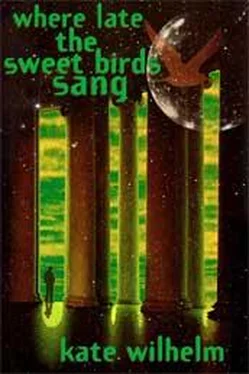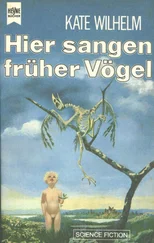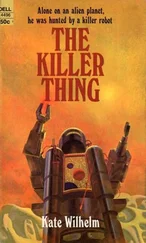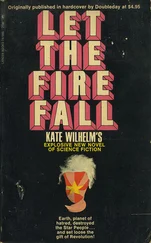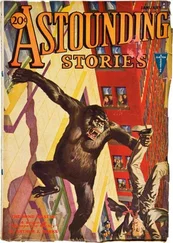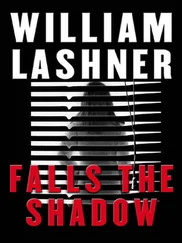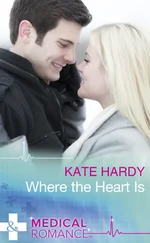“What do you mean?”
“When the accident happened, I was down to the mill. Having a bite with Avery. He was just finishing up down there. Section of the floor caved in, you know that old part where we should have put in a new floor last year, or year before. It gave way somehow. And suddenly there they were, the kids. Out of nowhere. No one had time to go get them, to yell for them to come running. Nothing, but there they were. They got their own two out of there and up to the hospital like fire was on their tails, David. Out of nowhere.”
He looked at David with a fearful expression, and when David simply shrugged, he shook his head and left the emergency room, looking down the hall first, a quick, involuntary glance, as if to make sure that they would permit him to leave.
Several of the elders were still in the waiting room when David went there. Lucy and Vernon were sitting near the window, staring out at the black night. Since Clarence’s wife died, he and Lucy had lived together, not as man and wife, but for companionship, because as children they had been as close as brother and sister, and now each needed someone to cling to. Sometimes sister, sometimes mother, sometimes daughter, Lucy had fussed over him, sewed for him, fetched and carried for him, and now, if he died, what would she do? David went to her and took her cold hand. She was very thin, with dark hair that hadn’t started to gray, and deep blue eyes that used to twinkle with merriment, a long, long time ago.
“Go on home, Lucy. I’ll wait, and as soon as there is anything to tell you, I promise I’ll come.”
She continued to stare at him. David turned toward Vernon helplessly. Vernon’s brother had been killed in the accident, but there was nothing to say to him, no way to help him.
“Let her be,” Vernon said. “She has to wait.”
David sat down, still holding Lucy’s hand. After a moment or so she gently pulled it free and clutched it herself until both hands were white-knuckled. None of the young people came near the waiting room. David wondered where they were waiting to hear about the condition of their own. Or maybe they didn’t have to wait anywhere, maybe they would just know. He pushed the thought aside angrily, not believing it, not able to be rid of it. A long time later W-1 entered and said to no one in particular, “He’s resting. He’ll sleep until tomorrow afternoon. Go on home now.”
Lucy stood up. “Let me stay with him. In case he needs something, or there’s a change.”
“He won’t be left alone,” W-l said. He turned toward the door, paused and glanced back, and said to Vernon, “I’m sorry about your brother.” Then he left.
Lucy stood undecided until Vernon took her arm. “I’ll see you home,” he said, and she nodded. David watched them leave together. He turned off the light in the waiting room and walked slowly down the hall, not planning anything, not thinking about going home, or anywhere else. He found himself outside the office that W-l used, and he knocked softly. W-1 opened the door. He looked tired, David thought, and wasn’t sure that his surprise was warranted. Of course, he should be tired. Three operations. He looked like a young, tired Walt, too keyed up to go to sleep immediately, too fatigued to walk off the tension.
“Can I come in?” David asked hesitantly. W-l nodded and moved aside, and David entered. He never had been inside this office.
“Clarence will not live,” W-l said suddenly, and his voice, behind David, because he had not yet moved from the door, was so like Walt’s that David felt a thrill of something that might have been fear or more likely, he told himself, just surprise again. “I did what I could,” W-l said. He walked around his desk and sat down.
W-l sat quietly, with none of the nervous mannerisms that Walt exhibited, none of the finger tapping that was as much a part of Walt’s conversation as his words. No pulling his ears or rubbing his nose. A Walt with something missing, a dead area. Now, with fatigue drawing his face, W-1 sat unmoving, waiting patiently for David to begin, much the same way an adult might wait for a hesitant child to initiate a conversation.
“How did your people know about the accident?” David asked. “No one else knew.”
W-l shrugged. A time-consumer question, he seemed to imply. “We just knew.”
“What are you doing in the lab now?” David asked, and heard a strained note in his voice. Somehow he had been made to feel like an interloper; his question sounded like idle chatter.
“Perfecting the methods,” W-l said. “The usual thing.” And something else, David thought, but he didn’t press it. “The equipment should be in excellent shape for years,” he said. “And the methods, while probably not the best conceivable, are efficient enough. Why tamper now, when the experiment seems to be proving itself?” For a moment he thought he saw a flicker of surprise cross W-l’s face, but it was gone too swiftly and once more the smooth mask revealed nothing.
“Remember when one of your women killed one of us a long time ago, David? Hilda murdered the child of her likeness. We all shared that death, and we realized that each of you is alone. We’re not like you, David. I think you know it, but now you must accept it.” He stood up. “And we won’t go back to what you are.’’
David stood up also, and his legs felt curiously weak. “What exactly do you mean?”
“Sexual reproduction isn’t the only answer. Just because the higher organisms evolved to it doesn’t mean it’s the best. Each time a species has died out, there has been another higher one to replace it.”
“Cloning is one of the worst ways for a higher species,” David said slowly. “It stifles diversity, you know that.” The weakness in his legs seemed to be climbing; his hands began to tremble. He gripped the edge of the desk.
“That’s assuming diversity is beneficial. Perhaps it isn’t,” W-l said. “You pay a high price for individuality.”
“There is still the decline and extinction,” David said. “Have you got around that?” He wanted to end this conversation, to hurry from the sterile office and the smooth unreadable face with the sharp eyes that seemed to know what he was feeling.
“Not yet,” W-l said. “But we have the fertile members to fall back on until we do.” He moved around the desk and walked toward the door. “I have to check my patients,” he said, and held the door open for David.
“Before I leave,” David said, “will you tell me what is the matter with Walt?”
“Don’t you know?” W-1 shook his head. “I keep forgetting, you don’t tell each other things, do you? He has cancer. Inoperable. It metastasized. He’s dying, David. I thought you knew that.”
David walked blankly for an hour or more, and finally found himself in his room, exhausted, unwilling yet to go to bed. He sat at his window until it was dawn, and then he went to Walt’s room. When Walt woke up he reported what W-1 had told him.
“They’ll use the fertile ones only to replenish their supply of clones,” he said. “The humans among them will be pariahs. They’ll destroy what we worked so hard to create.”
“Don’t let them do it, David. For God’s sake, don’t let them do it!” Walt’s color was bad, and he was too weak to sit up. “Vlasic’s mad, so he’ll be of no help. You have to stop them somehow.” Bitterly he said, “They want to take the easy way out, give up now when we know everything will work.”
David didn’t know whether he was sorry or glad that he had told Walt. No more secrets, he thought. Never again. “I’ll stop them somehow,” he said. “I don’t know how, or when. But soon.”
A Four brought Walt’s breakfast, and David returned to his room. He rested and slept fitfully for a few hours, then showered and went to the cave entrance, where he was stopped by a Two.
Читать дальше
